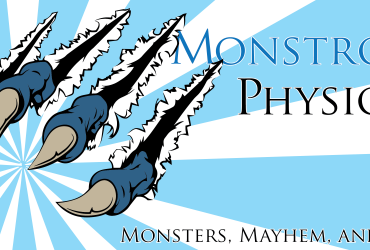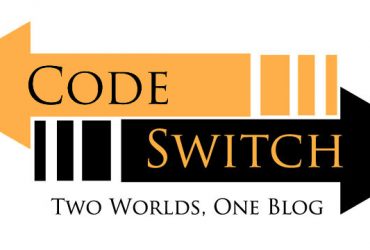The other day I was skimming Facebook like I’m ought to do when I have far more important work assignments on my plate when I came across a Facebook post from my friend and business partner, Owen K.C. Stephens. In his post, Owen said the following:
World of Warcraft frequently requires you to be dumb if you want to progress along a plotline. This doesn’t really bother me anymore, but it is one thing I like less about WoW than tabletop.
Originally, I was going to type a big, long, unsolicited reply on Owen’s Facebook post with my thoughts on the topic, but about three sentences in my Costello Alarm started blaring in the back of my head: Content! Content! Content! So I quickly deleted what I was writing and wrote this blog post instead.
Buckle up, readers, because you’re in for a game design rant that I was planning on giving to a fellow game designer!
Of Sandboxes and Theme Parks
So in a good game players have this thing called “agency.” We’ve touched upon agency a bit both in Guidance and across the Know Direction Network. Agency is essentially the ability of an entity to take actions without needing the consent or approval of another. So, for example, when I go on a multipage rant about how kids aren’t given enough agency in roleplaying games, I’m essentially talking about having kids in the game who are able to take actions that are meaningful and relevant to the game world as opposed to being relegated to “setting props” with no other purpose than to show that a town is alive and hopping.
Switching gears away from “Activist Alex” mode, player agency in referendum to game design basically refers to the player’s ability to shape the story with their actions. How much control do they have in determining the shape that their game world is in and whatnot? Now, its worth noting that player agency as I’ve defined it in this context is basically limited to games with a narrative—there’s no story to Connect Four, and so there isn’t any player agency in the sense that we’re talking about shaping the story. (Although there are certainly actions that Connect Four players can take in games like Connect Four, which means they have a measure of player agency in their own right.) Anyway, I digress.
Ultimately, there are two basic “types” of player narratives when we’re measuring player agency—sandboxes and theme parks. Now, of course there are shades of gray and degrees of each within them, but for a general category that’s what you’ve got.
Now, I’m sure you’ve heard of sandbox games before—that phrase is pretty famous among tabletop and video game gamers at this point. A sandbox is a game that maximizes player agency. Rather than provide the player with a concrete background for what’s happening in the world they’re in, a sandbox game challenges the player to create her own story by providing tools to make the story of the game her own. But what, then, is a theme park game? Well, theme park games are the opposite experience—rather than give you the tools to tell the story that want to tell, it gives you a prepackaged experience and asks that you assume the role of a specific character and enjoy the show.
Below are some examples of games (both Tabletop and Video Game) that fall into each of these agency types:
- Call of Duty (Extreme Video Game Theme Park): You’re given a character, a setting, a story, and even the general actions that each character takes. As a result, you have no control over the story aside from, “Do I choose to play this game?”
- Kingdom Hearts (Moderate Tabletop Theme Park): You’re given a character with a specific personality and story, and you don’t have much control over what happens in said story. You do get to chose your character’s powers and abilities to an extent, and you also get to make choices regarding the order the challenges that you tackle.
- PFS Serpent’s Rise / Serpent’s Ire (Moderate Tabletop Theme Park): You’re given a character and specific objectives that you have to complete in order to succeed, as well as a basic personality. You ultimately get to choose what happens in the story, however, by virtue of your actions and interactions with other PCs and NPCs.
- Elder Scrolls: Skyrim (Moderate Video Game Sandbox): You can build your own character from a dizzying array of options and choices, and tackle the world at your own pace and leisure. While there is a general story to be found, you’re under no requirement to actually embark on that story if you don’t want to. However, what happens across the world basically predetermined, and there are limited paths and options you can take.
- Pathfinder Adventure Paths (Moderate Tabletop Sandbox): Everyone makes their own character, and you can generally build your character however you want. (Though the APs often give suggestions to help GMs tell a cohesive story.) Generally speaking, the story of the AP is prewritten but the players involved can change the course of the story dramatically based upon their actions and how they use their powers and abilities to solve problems.
- Minecraft (Extreme Video Game Sandbox): You can do whatever you want. There’s no real story in the game—only tools. Do you want to build cities and monuments? Gather villagers? Explore other dimensions? All of it? None of it? Its all up to you, friend. All up to you.
- Home Games (Extreme Tabletop Sandbox): In a home game where the GM is making up the story, the players and the GMs can take the story basically anywhere they want if the GM’s willing. The story is whatever the GM dreams up, and suggestions and actions taken by the player shape that outcome. The GM and the player are in complete control of their shared experience together.
Because Knowing is Half the Battle
So, what’s the point of talking about the differences between theme parks and sandboxes? Honestly, just to acknowledge that different games have different narrative styles and goals. Intrinsically, no one format is inherently better than the other—it all depends upon the experience that the players are looking for in the game. For instance, when you sit down to play an Adventure Path, you typically do so with the understanding that you’re going to need to forfeit some of your player agency to play the game in question. Going off rails and doing whatever you want in a Tabletop RPG is fine, but if you do it during Strange Aeons, then you’re not really playing Strange Aeons anymore, are you? Ultimately, this is the biggest difference between video games and tabletop games—because video games can only do what their developers have coded them to do, they are incapable of “going off their story’s rails,” so to speak. But if the players of a tabletop game decide, “Hey, Strange Aeons isn’t cutting it for me. Let’s just do a home game,” or “Let’s just pick up our characters and ‘wander’ into the setting of Dragon’s Demand,” or “Let’s say our characters fell into an interdimensional hole in space-time and ended up in the world of Mouse Guard and were turned into mice,” then you can do that.
In this regard, Tabletops are inherently more sandbox style, while Video Games are inherently more theme park style—even Minecraft has limits to the things that you can do with the game, limits that might not exist in a Tabletop RPG. In contrast, tabletops have such a strong social element that two game sessions played by different gamers are always going to be inherently different, because they’re so heavily influenced by the actions of people.
This was ultimately what I wanted to point out to Owen, that even at its most RPG, games like World of Warcraft are inherently limited by design constraints, man hours, and funding, and as a result they’re simply unable to offer the same scope of player agency that you can get from an RPG. And frankly, it is absolutely okay to prefer having player agency to forfeiting it as you do in a video game, but it’s also important to remember that this lack of agency is a feature of the medium, rather than a flaw. Just as how you cannot write a Pathfinder Society scenario and truly expect there to be no table variation between PFS’s millions of players—you can really only minimize variation. But when players accept games for the amount of agency they allow them, they just might find the experience is ultimately better than expected.
Alexander “Alex” Augunas has been playing roleplaying games since 2007, which isn’t nearly as long as 90% of his colleagues. Alexander is an active freelancer for the Pathfinder Roleplaying Game and is best known as the author of the Pact Magic Unbound series by Radiance House. Alex is the owner of Everyman Gaming, LLC and is often stylized as the Everyman Gamer in honor of Guidance’s original home. Alex also cohosts the Private Sanctuary Podcast, along with fellow blogger Anthony Li, and you can follow their exploits on Facebook in the 3.5 Private Sanctuary Group, or on Alex’s Twitter, @AlJAug.






